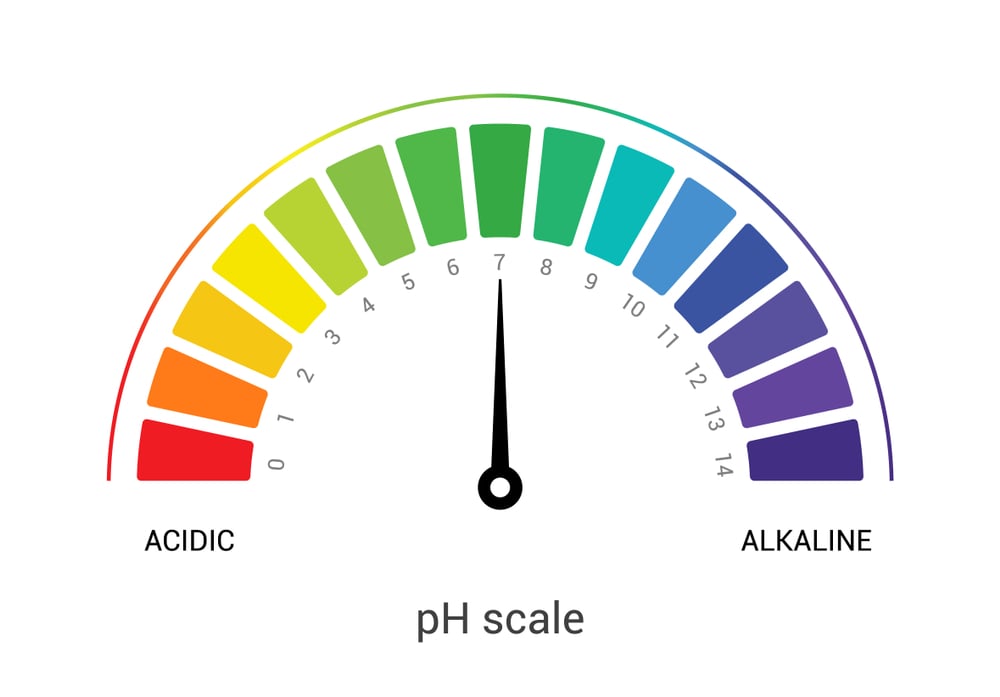The body fluids have a balanced quantity of acids and bases. The maintenance of this balance is necessary for biochemical reactions that occur in the body because biochemical reactions are very sensitive to even small changes of acids and bases.

Example: Low pH value in the stomach is required for the functioning of enzyme pepsin which is necessary for the digestion of food. The pH values of certain body fluids are as follows:
| 1. Blood: 7.4 -7.5 2. Semen: 7.2 -7.6 3. Bile: 6.0 -8.5 4. Saliva: 5.4 -7.5 5. Urine: 4.5-8.0 6. Gastric juice: 1.5 – 3.5 |
The body has its buffer system which prevents drastic change in the pH value of blood. It also helps to convert strong acids and bases into weak acids or bases. Lungs and kidneys are the main body organs that help to maintain systems in the body.
In the case of low respiration, the accumulated carbon dioxide combines with water and forms carbonic acid which releases hydrogen ions and causes acidosis.
CO₂ + H₂O → H₂CO3 → H+ + HCO–3
In over-breathing, excessive excretion of CO₂ occurs and causes alkalosis. The kidney can generate ammonia which neutralizes acidic byproducts of protein metabolism and is excreted in the urine.
There are two major buffer systems in the body.
(1) Bicarbonate (HCO–3): Carbonic acid system
(ii) Monohydrogen phosphate (HPO-24): Dihydrogen system (H2PO-24)
The bicarbonate buffer systems are found in the plasma and kidney whereas, the phosphate buffer system is found in the cells and kidneys.
The following steps are involved in acid excretion by kidneys.
(a) Sodium salts of mineral and organic acids are removed from the plasma by glomerular filtration.
(b) Sodium is preferentially removed from the renal filtrate or tubular fluid, called Na+ – H+ exchange.
Na+ + H₂CO3 → Na+ + HCO–3 + H+
(c) The sodium bicarbonate returns to the plasma and protons enter the tubular fluid forming acids of the anions that originally were sodium salts.
Potassium excretion is very complex and will be decreased when the sodium reaching the distal tubule is low or the proton secretions by the kidney tubule are increased. The formation of ammonia from protein and amino acid metabolism is another means of removing protons.
Make sure you also check our other amazing Article on : Limit Test for Arsenic